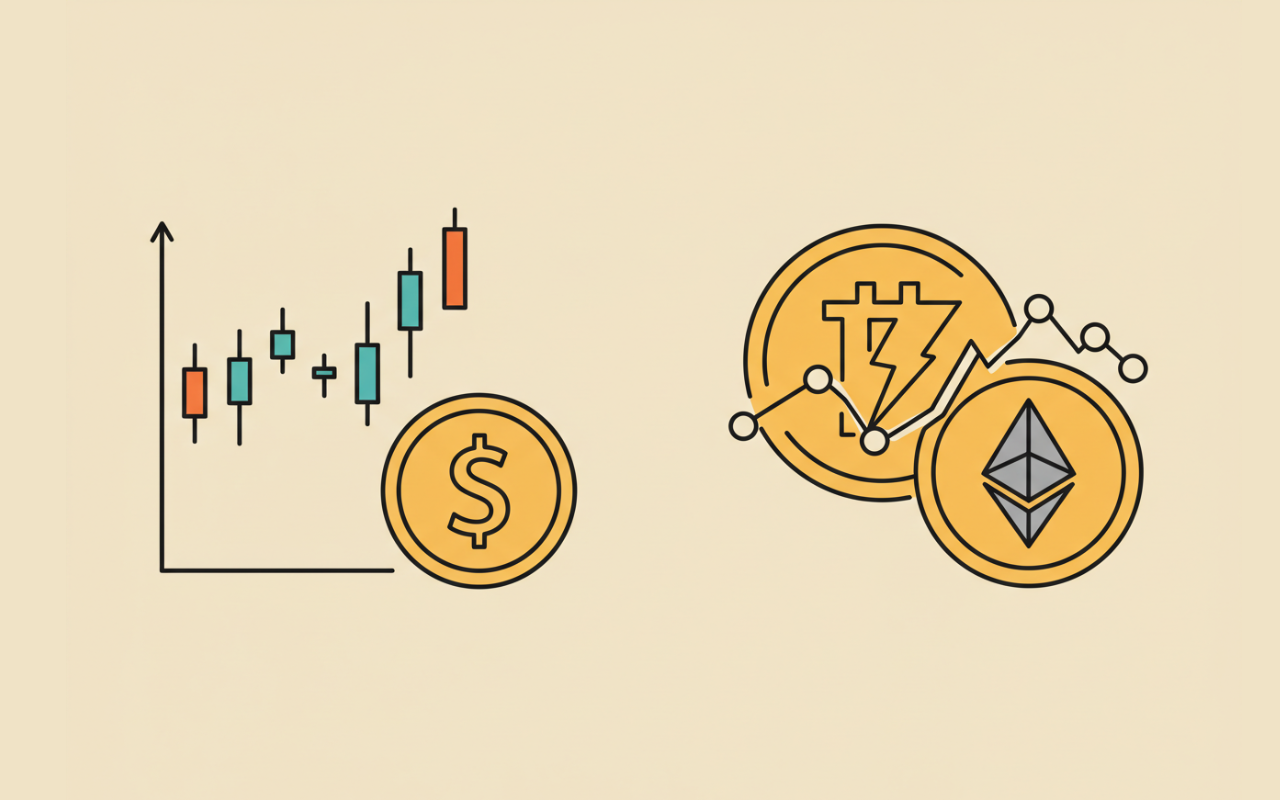When it comes to investing, one word that often sends shivers down the spines of both seasoned and newbie investors alike is volatility. It’s the rollercoaster ride of financial markets, one moment you’re up, the next you’re plunging down. Two of the most talked-about markets in recent years are stock market futures and cryptocurrency markets. Both come with their own set of risks and rewards, but which one is truly more volatile? Let’s dive in and explore!

First, What Do We Mean by Volatility?
Before we compare, let’s clarify what volatility actually is. In simple terms, volatility refers to how much the price of an asset fluctuates over a given period of time. High volatility means big price swings, while low volatility indicates more stable prices. Volatility can be a double-edged sword. For traders, it offers opportunities to profit from price movements. But for long-term investors, it can be nerve-wracking to watch their portfolio values swing wildly.
Stock Market Futures [A Quick Overview]
Stock market futures are contracts that allow investors to buy or sell a specific stock index (like the S&P 500) at a predetermined price on a future date. These are widely used by institutional investors and traders to hedge risks or speculate on market movements.
While the stock market itself is already subject to fluctuations, futures can amplify this because they allow traders to take leveraged positions. In other words, you can control a large amount of assets with a relatively small amount of money. Sounds exciting, right? But it also means that even small price movements can lead to significant gains or losses.
The Wild World of Crypto Markets
Now let’s talk about cryptocurrency markets. Unlike traditional stock markets, crypto markets operate 24/7. That means there’s no closing bell, and prices can move dramatically at any time — day or night.
Cryptocurrencies like Bitcoin and Ethereum are known for their jaw-dropping price swings. One day Bitcoin might be up 10%, and the next it could drop 20%. Why? A lot of it comes down to the fact that crypto is still a relatively young market. It’s influenced by factors like regulatory news, technological updates, and even tweets from influential figures (yes, we’re looking at you, Elon Musk).
Comparing Volatility [Stock Market Futures vs. Crypto]
→ So, which one takes the crown for being more volatile? Let’s break it down.
1. Magnitude of Price Swings
Cryptocurrencies are notorious for their extreme price swings. For example, Bitcoin has seen daily price changes of over 10% multiple times in its history. Stock market futures, while volatile, typically don’t experience such drastic movements in a single day unless there’s a major economic event or crisis.
→ Winner: Crypto Markets
2. Market Maturity
The stock market has been around for centuries and is governed by well-established rules and regulations. Futures trading adds an extra layer of complexity but still operates within a structured framework. On the other hand, the crypto market is like the Wild West. It’s relatively new, less regulated, and more prone to speculative trading.
→ Winner: Crypto Markets (for being less mature and therefore more unpredictable)
3. Trading Hours
Stock market futures have extended trading hours compared to regular stock markets, but they still have some downtime. Crypto markets, however, are always open. This constant availability means that news or events happening at any time can trigger immediate price movements.
→ Winner: Crypto Markets
4. External Influences
Both markets are influenced by external factors like economic data or geopolitical events. However, crypto markets are particularly sensitive to social media trends and public sentiment. A single tweet can send prices soaring or crashing, something you’re less likely to see in stock market futures.
→ Winner: Crypto Markets
Why Does Volatility Matter?
Volatility isn’t inherently bad. In fact, it can be a trader’s best friend. The rapid price changes in crypto markets can offer incredible opportunities for short-term gains if you know what you’re doing. Similarly, stock market futures provide a way to profit from market movements without needing to own the underlying assets.
However, high volatility also means higher risk. If you’re not careful, you could lose more than you bargained for. That’s why it’s crucial to have a solid strategy and risk management plan in place before diving into either market.
How to Navigate Volatile Markets
Whether you’re trading stock market futures or crypto, here are some tips to help you stay sane (and hopefully profitable):
- Do Your Research: Understand the asset you’re trading and what factors influence its price.
- Set Stop-Loss Orders: These can help limit your losses if the market moves against you.
- Don’t Invest More Than You Can Afford to Lose: This is especially important in highly volatile markets.
- Stay Informed: Keep an eye on news and events that could impact the market.
- Be Patient: Volatility can be nerve-wracking, but don’t let emotions dictate your decisions.
So, Which Market Is Right for You?
If you’re someone who thrives on adrenaline and doesn’t mind taking on extra risk, the crypto market might be your playground. But if you prefer a bit more structure and predictability (relatively speaking), stock market futures could be a better fit. At the end of the day, both markets have their pros and cons. The key is understanding your own risk tolerance and investment goals before jumping in.
Conclusion
While both stock market futures and crypto markets are volatile in their own ways, there’s no denying that crypto takes the cake when it comes to sheer unpredictability. Its 24/7 nature, susceptibility to social media influence, and relatively young age make it a rollercoaster ride like no other.
That said, volatility isn’t something to fear, it’s something to understand and manage. Whether you’re trading futures or dabbling in crypto, remember to stay informed, stay cautious, and most importantly, stay true to your financial goals.


![[Blockchain Beyond Cryptocurrency] The Untapped Potential Across Industries](https://mineatech.com/wp-content/uploads/2025/08/blockchain-beyond-cryptocurrency-the-untapped-potential-across-industries-348x215.png)
![What Is a Blockchain Consensus Algorithm? [Explained Simply]](https://mineatech.com/wp-content/uploads/2025/08/what-is-a-blockchain-consensus-algorithm-explained-simply-348x215.png)